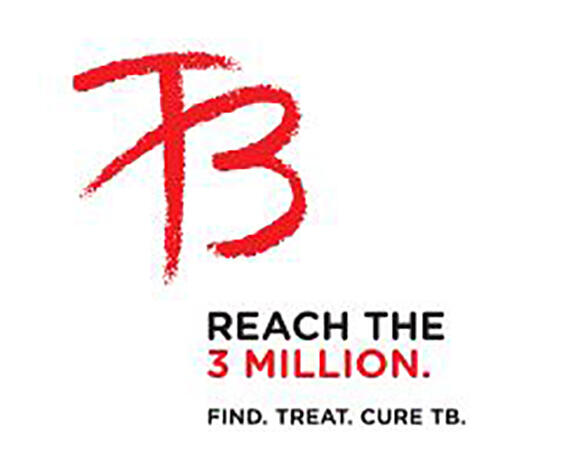
Tuesday 24 March is World TB Day, organised by the World Health Organisation (WHO) and dedicated to raising awareness and generating action to combat tuberculosis. This year the theme is ‘Reach the 3 Million’.
Globally, each year there are nine million new cases of tuberculosis and 1.5 million people die of the disease. TB is a curable disease, but each year three million people with TB do not get a diagnosis and therefore are not treated. We need to improve access to early diagnosis in order to stop people dying of tuberculosis and reverse the spread of the epidemic, hence the theme of ‘reach the 3 million’.
There were almost 8,000 cases of tuberculosis in England in 2013 (Public Health England), with the highest incidence in London. 350 people died from TB in the UK in 2012, the last year for which data is available to download in the side menu, almost 1 in 20 of those diagnosed with TB.
The STOP TB department of the WHO has set the ambitious target to eliminate TB as a public health problem by 2050. Great progress has been made since the millennium in reducing TB incidence globally, evaluating new drugs and improving access to advanced diagnostic tests. However, to achieve TB elimination within a generation increased funding is needed for research into better and cheaper diagnostic tests, shorter and more effective drug treatment combinations and new drugs for resistant strains of TB, as well as a greater understanding of how to treat TB and HIV together, for those who are suffering from both diseases.
At LSTM there is a multidisciplinary team working on research that spans the whole spectrum of this complex issue, taking a practical approach to find the best solutions which can be applied in the poorest regions of the world, which suffer most from TB. LSTM is part of several international partnerships working at the cutting edge of research into the disease both here in the UK and overseas, and include the Predict TB consortium, the STREAM clinical trial for Multi-drug resistant tuberculosis, the Wellcome Trust major overseas programme in Malawi and REACH Ethiopia, which was awarded the prestigious Kochon prize in 2014 for its significant contribution to combatting tuberculosis.
Novel approaches being taken at LSTM include adapting the process modelling techniques developed by supermarkets to help them respond to customer behaviour. By applying these techniques to predict the effects of new interventions within health systems we can predict the overall impact of introducing new strategies to control tuberculosis, and determine both the costs and number of cases prevented. This helps countries with limited budgets for health decide, for example, which new diagnostic tests will give the greatest benefit for the lowest cost. Other work includes looking at the co-evolution over time of both the bacteria and the immune systems of different human populations to understand why some people are more susceptible to TB disease than others. LSTM is also working in partnership with several companies developing new diagnostic tests for tuberculosis. LSTM provides expert guidance at all stages of test development from the early design of a test so that it is simple to use in extreme environments to providing rigorous technical evaluations of test accuracy in high tuberculosis burden countries.
Clinicians and scientists working on tuberculosis at LSTM, the University of Liverpool, and the Royal Liverpool University Hospital meet regularly in a group called LIV-TB to exchange ideas and discuss new findings in research into all aspects of tuberculosis, including socio-economic support for patients, new drug discovery, clinical trials and health systems research. To mark World TB Day, the group have invited Phil Du Cros head of the Manson Unit for MSF UK who will present a seminar to academics from LIV-TB and students currently studying the Diploma in Tropical Medicine and Hygiene at LSTM. By working together with affected communities, we can beat tuberculosis if we have sustained commitment from governments, funding agencies and policy makers to realise the goal of a TB-free world for the next generation.